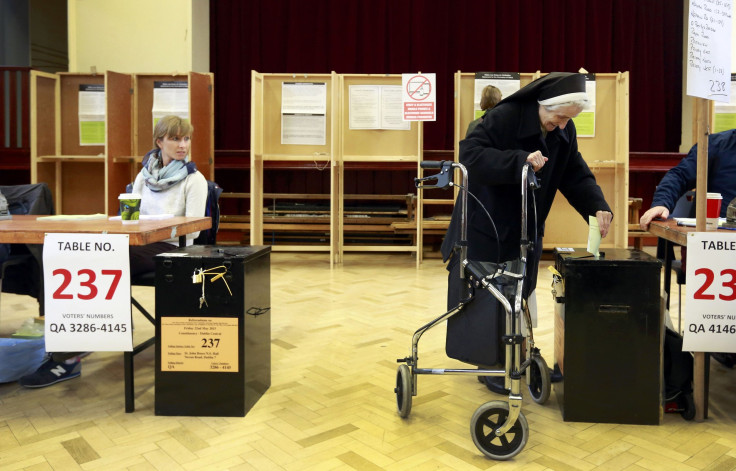Ireland Gay Marriage Vote: 3 Things To Know About The World’s First Popular Referendum On Same-Sex Marriage

Update as of 5:11 a.m. EDT: Ireland on Friday went to the polls for the world's first national referendum on gay marriage, the Guardian reported. Over 3 million voters were invited to cast votes to decide whether or not gay marriage would be legal.
Original story:
Irish voters are expected to endorse a bill on Friday that would legalize same-sex marriage, a move that would make Ireland the first country in the world to institute marriage equality by popular referendum. Polls have predicted that a majority of voters will support amending the country’s constitution to grant same-sex marriages equal legal status with those between opposite-sex couples, despite the Catholic Church’s opposition.
Here are three important things to know about the historic referendum:
1. Polls suggest a majority support the amendment -- but that lead is on shaky ground
Polling has indicated resounding support for the amendment in the days leading up to the March 22 referendum. A survey of opinion polls by national broadcaster RTE indicated that up to 69 percent of voters favoured marriage equality. However, despite the seemingly strong support for the bill, the number of people rethinking their position and turning against the legislation also appeared to be increasing. A Sunday Independent Millward Brown poll reported a 13 point drop in support for a Yes vote, with only 53 percent backing the legislation as compared to 66 percent in April. Other polls indicated a rise in undecided voters.
These shifts have made campaigners in favor of the amendment cautious. “Everything hangs on who turns out on Friday,” said David Farrell, a politics professor at University College Dublin in comments to the Los Angeles Times. The possibility of poor turnout among the demographics that support the legislation -- namely, young, urban voters -- could lead the bill to an upset failure, especially if their older, rural counterparts maintain their trend of turning out in higher numbers. Some analysts have also tempered expectations around the polling by pointing out that some conservative voters might be wary of publicly admitting that they are likely to vote against the amendment.
2. The Catholic Church’s waning political role
The Catholic Church, historically one of Ireland’s most powerful institutions, has opposed the amendment but that opposition is largely falling on deaf ears as social attitudes in the country have shifted significantly over the past decades. An estimated 84 percent of Ireland’s population identifies as Catholic but church attendance numbers have plummeted, with only about a third of Catholics attending mass every week.
The church’s authority has suffered in the wake of child abuse scandals -- a legacy that has left the institution far less assertive on the political stage than it has been in the past. In the 1970s and 1980s, the church was a vocal opponent of efforts to legalize contraception and divorce, the latter passing by only a narrow margin in 1995.
3. The amendment has widespread support among politicians, big companies and celebrities
Ireland’s marriage reform campaign has the backing of all of its four political parties, including Prime Minister (or Taoiseach) Enda Kenny, a devout Catholic who has become one of the most prominent supporters of same-sex marriage rights in the country. "My message to people is that if you believe in equality, do not be complacent, do not leave it to others," Kenny said ahead of the referendum, in comments reported by Reuters. "Say yes, yes to inclusion, yes to rights, yes to love, yes to equality. Take away those burdens for people and let them be who they are."
The bill has also been endorsed by large employers, tech companies like Twitter most prominent among them, as well as internationally recognized Irish celebrities like Colin Farrell, Aidan Gillen, Chris O’Dowd and Bono.
© Copyright IBTimes 2024. All rights reserved.






















